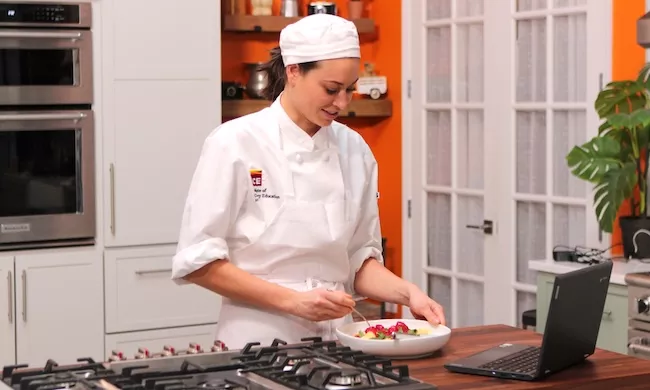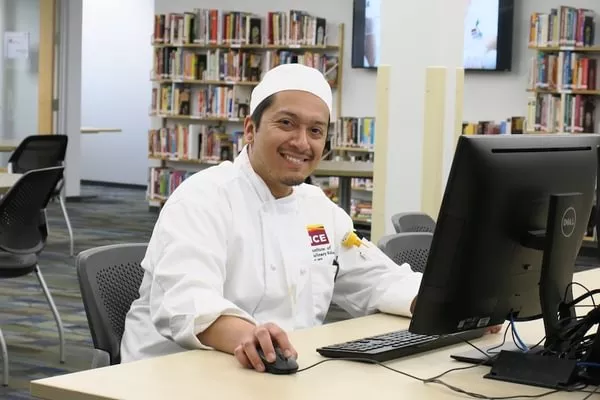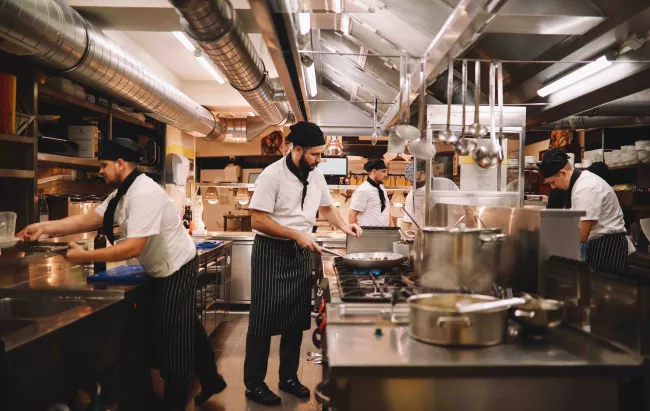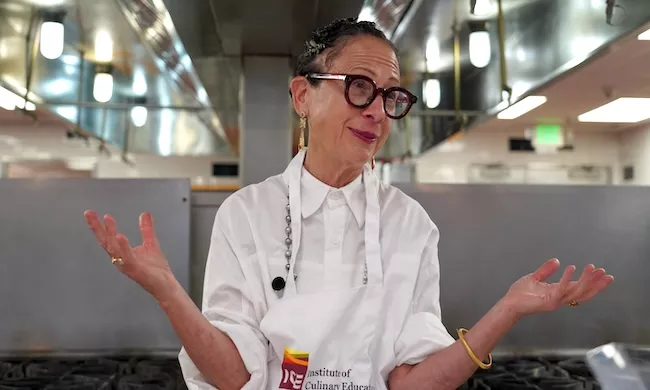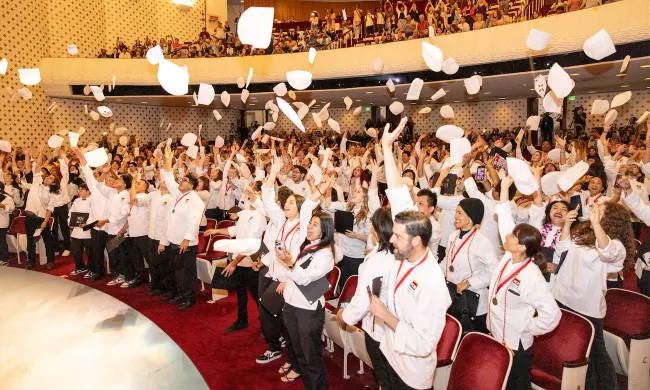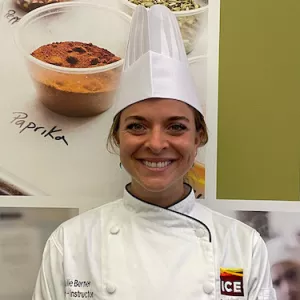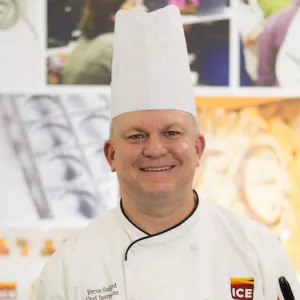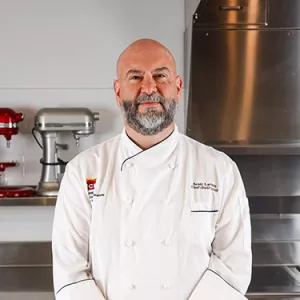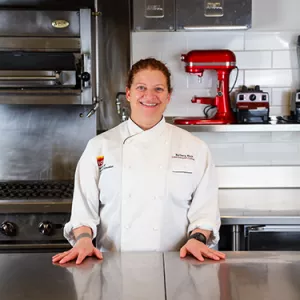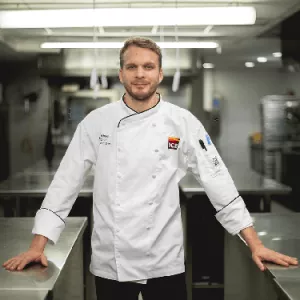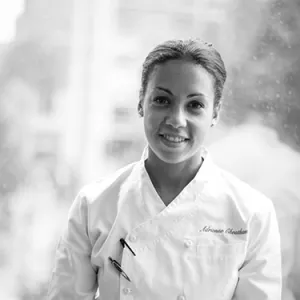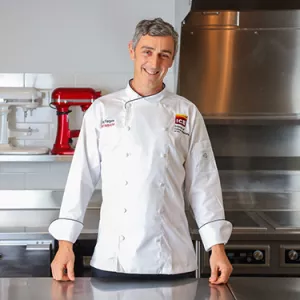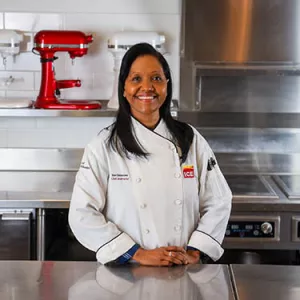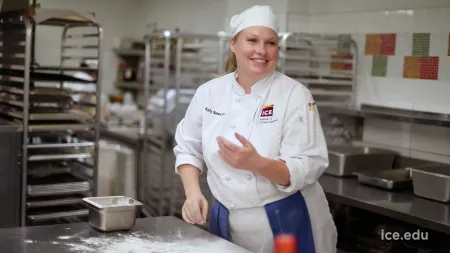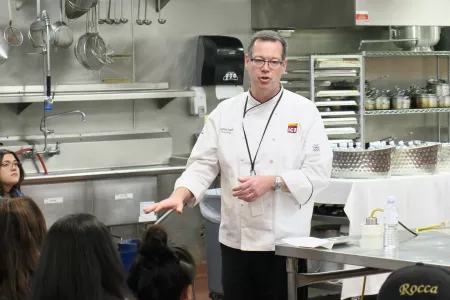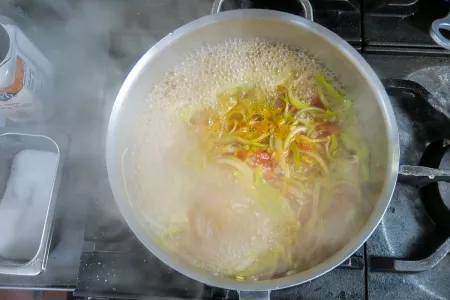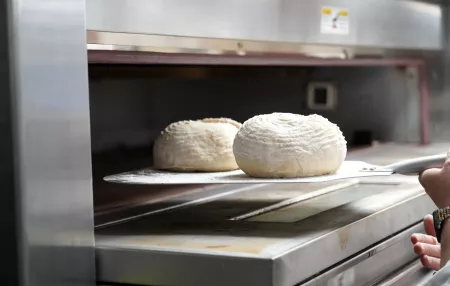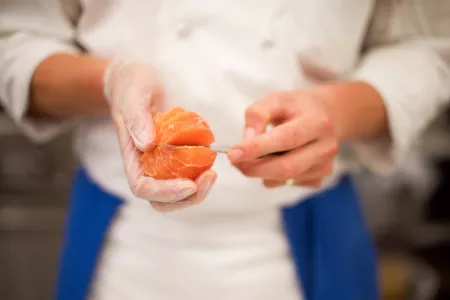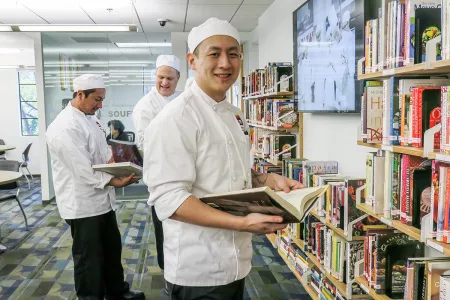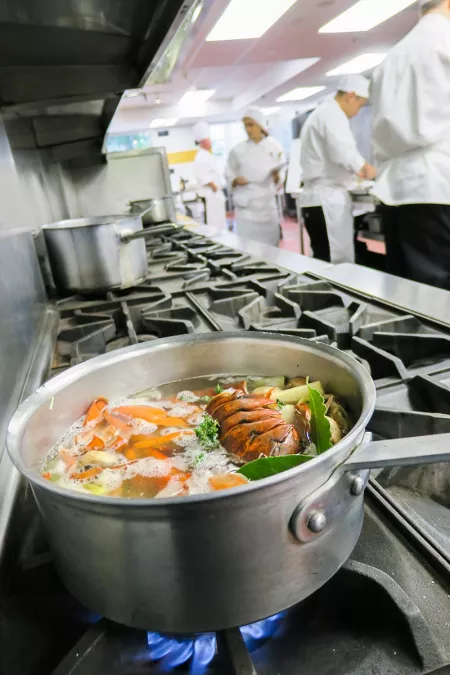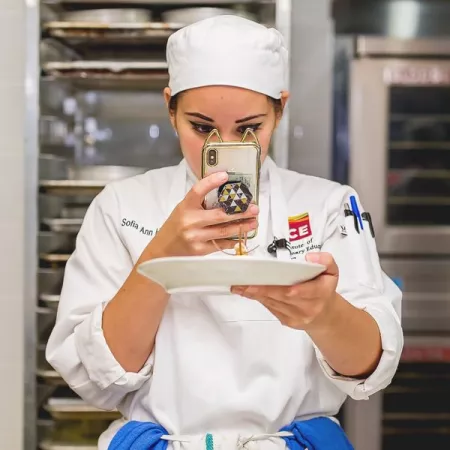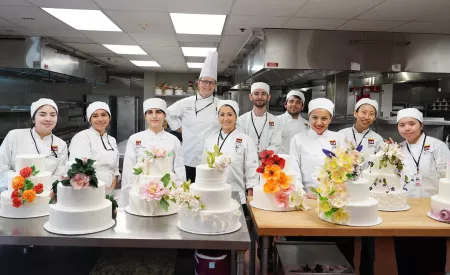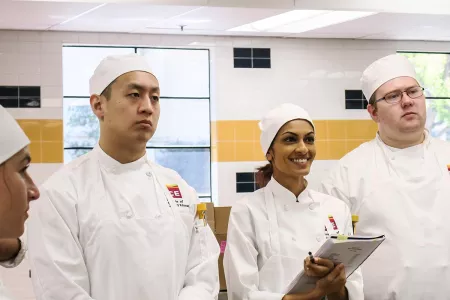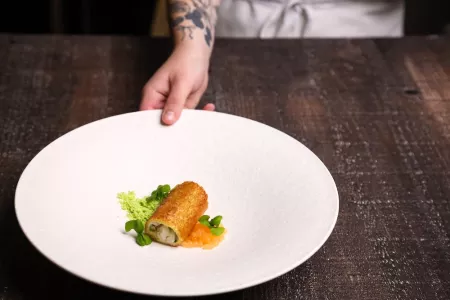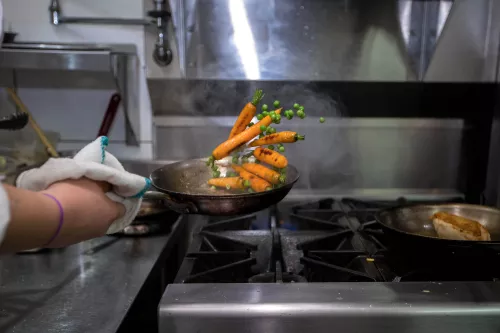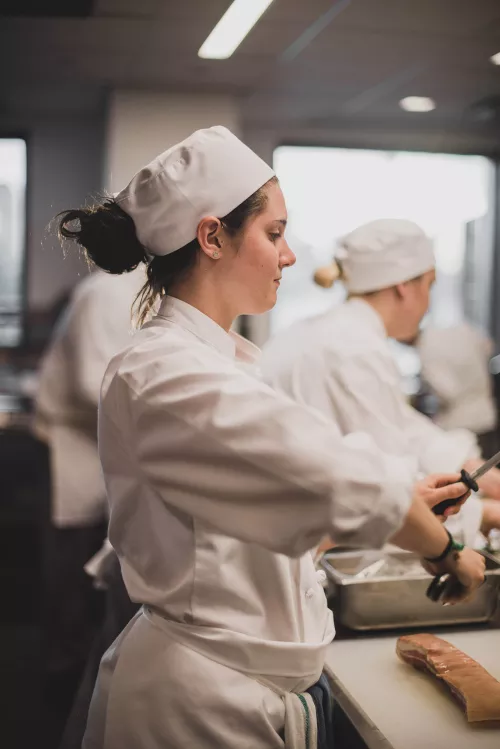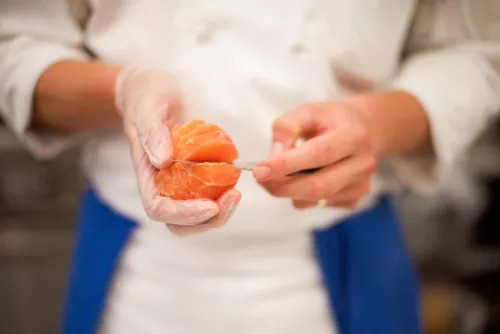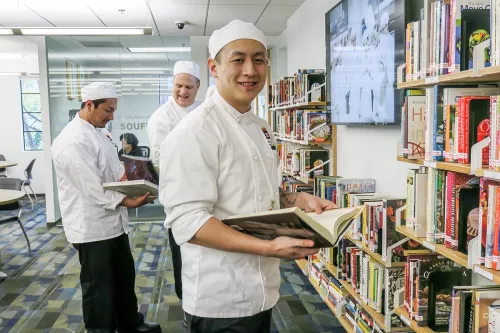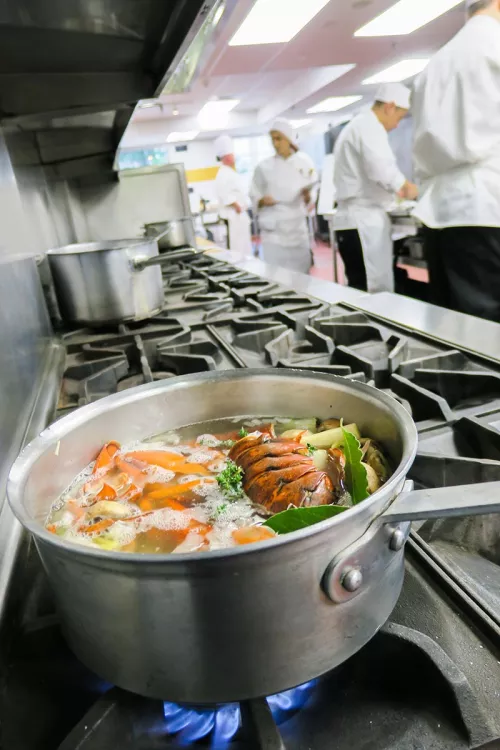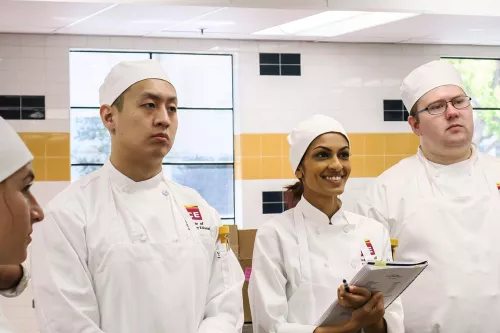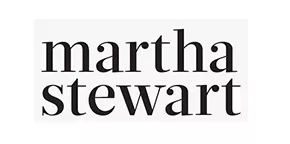Course 1
INTRODUCTION TO ONLINE LEARNING & RESTAURANT REALITIES
0 credit hours
This course is designed to familiarize students with best practices for success in our online program and in the restaurant industry. Topics include learning management system use, internet research and time management. We also introduce the tenets of professionalism and the expectations of the food service industry.
Course 2
CONCEPT DEVELOPMENT & MENU DESIGN
3 credit hours
This course is designed to acquaint students with the realities of a culinary business concept — from creativity to profitability. By surveying the industry, students explore all types of operations and analyze concepts, as well as research feasibility and location selection. Students gain the knowledge required to develop and refine their ideas. This course also gives a comprehensive view of key aspects of the menu, including planning, pricing, layout, and design. Students prepare sample menus as a project, which will become part of their final business plans.
Course 3
PURCHASING & COST CONTROL
3 credit hours
Strategies for purchasing and control are vital for the success of any culinary operation. This course examines labor, beverage and food costs, and revenue control. Purchasing guidelines, inventory and control, employee performance standards, productivity and scheduling, use of point-of-sale systems, computers, and new technology are also reviewed.
Course 4
MARKETING
2 credit hours
Culinary businesses are marketing businesses from the moment an idea is developed through opening and operation. This course provides an in-depth examination of how a marketing plan is developed, including market research, positioning, product mix, and life cycle. This includes development of potential strategies for advertising, merchandising, public relations, social media, and promotion.
Course 5
SERVICE MANAGEMENT
2 credit hours
Managing the front of the house requires particular knowledge and skill. Students are introduced to the tools and techniques of service and service management in restaurants and other foodservice operations. This course also covers how to build customer satisfaction.
Course 6
FOOD SAFETY
1 credit hour
Proper food handling and safety procedures are important elements of a successful culinary business. In this course students earn the nationally recognized ServSafe certification while learning the essential principles of food safety.
Course 7
FINANCE & ACCOUNTING
3 credit hours
A working understanding of numbers is critically important to culinary success. The curriculum for this course focuses on the use of financial statements as a tool for control and decision-making. Topics include balance sheets, statements of net income, break-even analysis, cash flow, and financing. Budgets, industry standards and variation analyses are emphasized. Actual case studies are used to provide real experience.
Course 8
SUPERVISORY MANAGEMENT & FOOD SERVICE LAW
3 credit hours
People are the most important resource in any culinary business. In this course students focus on the major functions of management, including leadership, motivation, communication, hiring practices, recruitment, training, discipline, and staff organization. In addition, this course focuses on the legal rights and responsibilities of owners and operators. Topics include labor relations, employment law, real estate and contracts. Various business structures are also surveyed.
Course 9
BEVERAGE & WINE
2 credit hours
Beverage sales is a challenging business. This course explores all areas of beverage service, including wine, spirits, beer, mixology, nonalcoholic drinks, and bar design. Wine tasting and appreciation is included. Students will study proper alcohol service and receive safe beverage service certification.
Course 10
FACILITIES & DESIGN
2 credit hours
This course examines how to bring a concept to life, from design through construction and final inspection. Whether planning to renovate or build a restaurant from scratch, students gain insight into capital costs and budgeting, as well as how to work with architects, designers, and contractors. Topics include equipment and systems basics, space analysis, product and people flows, kitchen and interior design.
Course 11
CULINARY FUNDAMENTALS 1
3.5 credit hours
Most culinarians begin their training by learning how to pare and prepare greens and vegetables. After a comprehensive introduction to knife skills and food safety, students will use a range of methods for preparing vegetables, progressing from salads to complex vegetarian cuisine, to explore the techniques that underlie fine cooking.
Course 12
CULINARY FUNDAMENTALS 2
2.5 credit hours
The first in a series of three courses on protein-based cuisine, this poultry-based course will cover key techniques like sautéing, roasting, braising and grilling. Students will fabricate the essential cuts and prepare stocks and sauces that completely utilize each ingredient. The class will prepare dishes to practice each technique and build confidence and competence.
Course 13
CULINARY FUNDAMENTALS 3
2.5 credit hours
Pork is one of the most versatile meats, providing diners with everything from sausage and chops, to ribs and medallions. All of these cuts offer the opportunity for students to advance their culinary skills while exploring new flavors and plating styles. Lamb is also featured in this comprehensive course.
Course 14
CULINARY FUNDAMENTALS 4
2.5 credit hours
In this final course on protein-based cuisine, students prepare grilled steak, braises and stews along with brown sauces and pan sauces aiming to deepen their understanding of fundamental techniques. The class applies these methods to seafood, as students prepare dishes that highlight the special skills that these foods require.
Course 15
PASTRY & BAKING
3.5 credit hours
The skills taught in this course are not just for desserts – they can be used in savory cooking as well. From custards and pizza to biscuits and cakes, students prepare specialties that can be part of exciting entrees or memorable finales to the dining experience.
Course 16
RESTAURANT ESSENTIALS
2.5 credit hours
Students explore important restaurant staples with an emphasis on lunch, brunch and breakfast specialties from biscuits and gravy to Eggs Benedict. There is also an extensive exploration of sandwiches, fresh and dry pasta, and sauces.
Course 17
INTERNATIONAL CUISINE 1
2.5 credit hours
International flavors and techniques exert a growing influence on the modern culinary world. Understanding how to use the herbs, spices, ingredients and methods that characterize global cuisines is a necessity in today’s food culture. This course acquaints students with the flavor profiles, specific techniques and essential dishes of the Mediterranean, Africa and the Americas.
Course 18
INTERNATIONAL CUISINE 2
2.5 credit hours
Continuing the exploration of food from around the world, this course examines key dishes, ingredients, flavors and techniques from eastern and central Asia.
Course 19
BUSINESS COMMUNICATIONS
3 hours
This course introduces students to the foundations of communication in a culinary business setting. This course will examine and apply the types and purposes of various business documents; create messages using appropriate channels for delivery based on context, audience and purpose; understand the effect of technology, such as social media, on business communication. Students will also explore written and verbal communication strategies as they relate to recipe writing, reviewing, food blogging and culinary demonstrations.
Course 20
THE HISTORY AND CULTURE OF FOOD
3 credit hours
This course explores the importance of food and foodservice throughout history, from prehistoric times to the present. The historical influence on modern foodservice is analyzed, and culinary trends in history are identified and investigated. Topics will include the relation of food to personal and cultural identity, and the interconnections between cuisine, historical events and international locations.
Course 21
FOOD AND APPLIED NUTRITION
3 credit hours
An introductory course in the study of the principles of human nutritional needs. Students examine current dietary guidelines, the function of nutrients, and dietary preferences. Students will study menus and recipes for modifications to optimizing nutritional content and balance the current trends in nutritional study with culinary and baking techniques. The course highlights the relationship between diet, health, disease and how applied nutrition can benefit not only immune-challenged populations, but average healthy populations as well.
Course 22
EXTERNSHIP
8 credit hours
At the end of their in-class training, all students complete an externship course. While ICE strongly recommends that students extern in restaurant kitchens, they may request venues such as hotels, catering companies, corporate dining rooms, or test kitchens in accordance with their professional goals.


